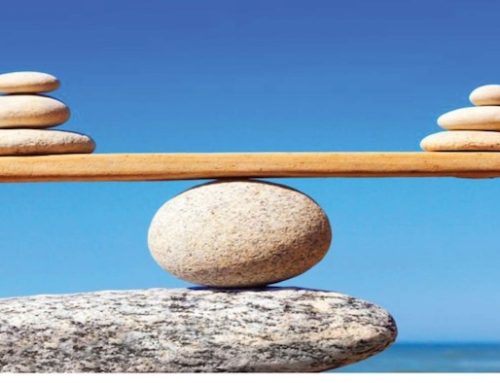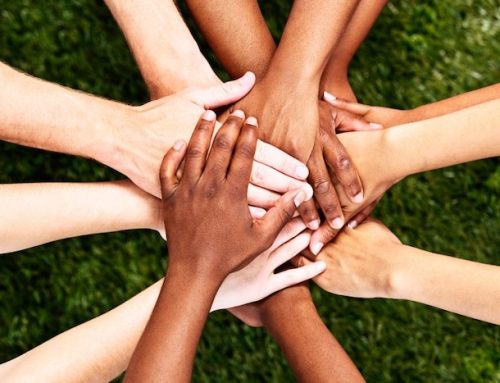On this Memorial Day, as we remember those who gave their lives so we might remain free to live ours, we have our own remembering to do—about how we handled the challenges we faced during the pandemic. Were we patriots who wore masks and got vaccinated, or did we decide sacrifice was something for others to endure? Can we summon the courage to reconcile who we were in our collective moment of peril? Can we recalibrate and address the world before us with a renewed sense of virtue, empathy, and fortitude? Will character remain a quaint memory, or will it, once again, become our springboard to a better life for those who follow us?
This morning, a lavender wild Iris waved at me in a gentle breeze as I rode past the pastures at Telluray Ranch. In the Covid-19 summer of 2020 they never waved; even Iris know when something isn’t right. From my home in the Rockies, to my daughter’s apartment in Manhattan, to my son’s home in Seattle, America is crawling out of its involuntary hidings to experience a new life. Our maskless faces shine with complete expressions once again, conveying the hope of survival and the prospect of redemption. And while there is plenty to worry us as we confront a world fraught with uncertainty, we deserve our moment to smile and wave back at the wild and wise Iris.
What have we learned? What got us through? What should we hold onto as we forge a new post-pandemic life? One can become overwhelmed if we attempt to tally the losses that we have endured in such a short span of time. It is both breathtaking and heart-breaking. Above all, it is profoundly humbling to realize how we, and the institutions we thought would protect us, proved to be so fragile and unreliable. It turns out we were not nearly as cool or strong as our social media posts suggest. And yet, we remain. The question is: what can we do as individuals to build back our resilience and restore our strength of character?
Here are ten thoughts; by no means exhaustive in either scope or depth. They are offered here to prompt personal contemplation and discussion with loved ones, peer groups, and co-workers. Some new, but mostly old. After all, we aren’t the first to face unfathomable peril. Like our crumbling American bridges and roadways that need strengthening and renewal, now is the time to catch our breath and fortify every fiber of our being so we might face the future with an unyielding strength of character based in a sense of renewed compassion for everything and everyone that crosses our path.
- When life throws shit in your face, think of it as fertilizer (and grow from it). It’s not what happens to you, it is how you respond to what happens to you that matters. This rule is as old as the ancients; Stoics to be exact. Okay, Socrates before that. It was one of the principal lessons Viktor Frankl left for us to explain how he became one of the one-in-twenty-eight who survived Auschwitz. The Nazis took everything away from those they tortured in their concentration camps, but Frankl held that in spite of all the indignities and deprivations, they could not take away his choice about how to respond to them. This gave him agency, which allowed him to covet a purpose—a self-defined meaning for his otherwise miserable camp life. As Friedrich Nietzsche argued, “He who has a why in life can bear almost any how.” Humans are purpose-driven animals. Without purpose, life is unsustainable. What do you choose as your meaning—your purpose? It is your choice, and yours alone.
- Be worthy of your suffering. Will you become a victim of circumstance, or master of your destiny? Suffering is, in and of itself, an opportunity to exercise your muscles of resilience. Magnificence is seldom produced in the safety and comfort of privilege. It is born of sweat and pain and toil against all odds. Being worthy of your suffering asks whether the decisions you made in response to peril made a positive difference in your life and the lives of others. Suffering, therefore, can also be a source of meaning and, further, a way to actually (albeit paradoxically) sustain life. The manner in which you bear your burden may be the ultimate measure of strength of character. Again, I summon Frankl, who wrote that suffering is not necessary to find meaning, only that “meaning is possible in spite of suffering.”
- Think in terms of possibilities, not limits. In the grip of fear, it is natural to default to a sense of limits—to migrate to the loser’s corner that thrives in the dopey ether of focusing on why this or that cannot be done. When we are captured by the disposition of limits, defeat becomes a self-fulfilling prophecy. I observed this in my own county’s response to the pandemic, although, to the credit of new leadership mid-pandemic, we were able to turn the wind to our backs and, with the help of people indisposed to the thought of failure, we prevailed. All that happened was a shift in the query to why can we do this or that, as opposed to why not. Crises present opportunities to make the world over anew. Limits assure we protect the status quo, which almost never produces desired outcomes.
- Home is where you are, wherever that may be. People who yearn for home—that place to go back to where everything will be alright again—have a lot of work to do. Those who keep pulling up stakes, or changing partners, may be searching for a home that will never exist until they accept themselves and love that self. The constant search for new things, places, partners, in the mistaken belief that tranquility will be found by changing the external elements of life ignores the actual problem, which is buried inside the self. The continual search for replacement parts will never succeed, and will hurt many people along the way. In short, get right with yourself, or you will never be able to do right by others. When you are completely comfortable with who you are, anywhere can be home. Home is a state of tranquility that should be both attainable and sustainable regardless of location. It is where you are.
- Enjoy your morning cup of coffee as if it were the first one you’ve ever had, and as if it were the last one you will ever have. Let that attitude accompany you throughout your day. Your life will be as rich as that cup of coffee. This encompasses the classic Buddhist teaching of living in the present moment, which is the only moment that matters; the only moment you can do anything about. I have lost millions of moments in my life gulping down my coffee. I have missed millions of opportunities to love myself enough to allow my happiness to be sustained by the simplicity of the touch of the warm mug, the aroma of a humbly cultivated and gently processed bean, the swirl of froth that beckons a sip of perfection—all for the urgency of moments yet to come. Don’t be like me.
- Pursue mastery in the moment, one moment at a time. Approach every task, no matter how mundane, by attempting mastery. Not only will the task be performed better than if it were completed mindlessly, you will be strengthening your focus muscle—your power of concentration. Pursuing mastery also has the effect of slowing things down and allowing for the decompression of life. In America, we have become a culture of “good enough” or “close enough.” We only receive A grades if we have the benefit of a curve. I do not remember my maternal grandfather, who lived as a child in a sod hut; survived World War I, the Great Depression, and World War II; to just miss (by three months) seeing a man land on the moon and returned safely to earth, ever, ever, say “Okay, that’s close enough.” We need to get back to mastery, and soon.
- Listening is the greatest compliment you can pay someone. Valuing what others have to say not only affirms who they are, it allows them to bring their piece of the puzzle to the table, which benefits all. And, being listened to encourages reciprocation. People do tend to treat others as they wish to be treated. Are you frustrated by a parent, spouse, partner, sibling, co-worker, or child not listening to you? Maybe you should start by listening to them. If you find yourself thinking about what you are going to say next, once they finish their sentence, you are nor listening to them. If what you have to say next is not affected by what they have just said—if it pays no reference to what they have said—you are not listening to them. Until and when Americans can regain this skill, of honoring the ratio of two ears to one mouth, suggesting how much listening versus speaking we should be doing, we will find our many issues insurmountable.
- Practice radical empathy. In Isabel Wilkerson’s fabulous book, Caste: The Origins of Our Discontents (which should be read by every American), she proposes the employment of radical empathy. “Radical empathy … means putting in the work to educate oneself and to listen with a humble heart to understand another’s experience from their perspective, not as we would imagine we would feel. Radical empathy is not about you and what you think you would do in a situation you have never been in and perhaps never will. It is the kindred connection from a place of deep knowing that opens your spirit to the pain of another as they perceive it.” Empathy—radical empathy—is the key to solving so many of America’s problems.
- Being kind costs nothing. On a recent flight to New York City, I was seated in the bulkhead next to a thirty-something woman with a carry-on bag that would normally fit under the seat in front of you (but for the bulkhead). In the world of airline safety protocol, her bag (and mine) were required to be stowed in a luggage bin above the seats. Of course, as airline designer ignorance goes, the bins above our seats were taken up with first aid and oxygen tanks, leaving us to swim back down the aisle to stow our bags. Without a word to her, I accepted responsibility to stow and retrieve our bags, both in-flight and after landing. Upon doing so after landing, the woman looked me in the eye and asked, “Why are you being so nice to me?” I replied simply, “So you will be nice to someone else.” Therein lies the power of pay-it-forward. Maybe, just maybe, we can start the next epidemic—of kindness. (Even during air travel!)
- The day of your death is an exit exam. If this was the last day of your life, would you pass? If everything you did today was the last time you would do it, did you do those things as well as you could have, and did you appreciate the chance to do them? Are you living your life in a state of tranquility? If the answers are yes, you may die a good death without fear or regret. You will leave this world better than you found it; you have prevailed in the game of life. Your farewell will undoubtedly be sorrowful for those who love you, but you have earned the right to put a smile on your face, close your eyes, and rest in blissful peace.
Live your life with a strength of character that will long be honored by those you leave behind. This is your only duty—to yourself and humankind. If you feel you have work to do (and who doesn’t) let this Memorial Day mark its beginning.






